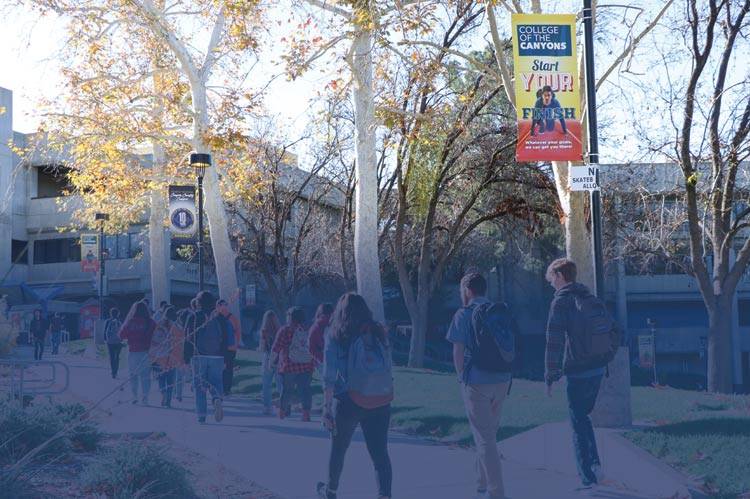Engineering About Our Program
The Engineering program provides curriculum concerned with the fundamentals of mechanics, electrical theory, and materials that can be applied to all disciplines within engineering. The degree concentrates on helping students develop critical thinking skills, a creative imagination, and excellent communication skills to effectively function in the professional environment. Most careers in engineering require a baccalaureate or graduate degree. Career options include: mechanical engineer, civil engineer, computer engineer, aerospace engineer, biomedical engineer, automotive engineer, and manufacturing engineer.
Student Learning Outcome: Students will be able to interpret, analyze, and evaluate engineering concepts.
What does the College of the Canyons Engineering program offer?
Engineers typically enter the occupation with a bachelors degree in an engineering specialty. The Engineering program at College of the Canyons provides students with the lower division engineering course work required for transfer to most four-year colleges and universities. The typical Engineering course work at College of the Canyons includes: Solids Modeling for Mechanical Drafting, Materials of Engineering, Circuits, Statics, Dynamics, Calculus and Physics. Students can earn an associate degree in Pre- Engineering.
For specific information on the requirements to transfer with a major in Engineering, it is highly recommended that you meet with a counselor to develop an educational plan for your specific desired transfer institution. Information is also available at www.assist.org.
NOT SURE WHAT TO TAKE OR HOW TO GET STARTED?
Check out the Program Mapper and the recommended course sequence documents below.
Areas of Engineering Specialization
Biomedical: Biomedical engineers develop devices and procedures that solve medical and health-related problems by combining their knowledge of biology and medicine with engineering principles and practices.
Chemical: Chemical engineers apply the principles of chemistry to solve problems involving the production or use of chemicals and bio-chemicals.
Civil: Civil engineers design and supervise the construction of roads, buildings, airports, tunnels, dams, bridges, and water supply and sewage systems.
Computer: Computer hardware engineers research, design, develop, test, and oversee the manufacture and installation of computer hardware. Hardware includes computer chips, circuit boards, computer systems, and related equipment such as keyboards, modems, and printers. Computer software engineers apply the principles of computer science and mathematical analysis to the design, development, testing, and evaluation of the software and systems that make computers work.
Electrical: Electrical engineers design, develop, test, and supervise the manufacture of electrical equipment. Some of this equipment includes electric motors; machinery controls, lighting, and wiring in buildings; automobiles; aircraft; radar and navigation systems; and power generation, control, and transmission devices used by electric utilities.
Environmental: Environmental Engineers use the principles of biology and chemistry to develop solutions to environmental problems. Industrial: Industrial Engineers determine the most effective ways to use the basic factors of productionpeople, machines, materials, information, and energyto make a product or provide a service.
Mechanical: Mechanical engineers research, design, develop, manufacture and test tools, engines, machines, and other mechanical devices. Mechanical engineering is one of the broadest engineering disciplines. Engineers in this discipline work on power-producing machines such as electric generators, internal combustion engines, and steam and gas turbines.
Information on additional areas of engineering can be found in the Occupational Outlook Handbook.
Where do Engineers Work?
Most engineers work in office buildings, laboratories, or industrial plants. Others may spend time outdoors at construction sites and oil and gas exploration and production sites, where they monitor or direct operations or solve onsite problems.
Many engineers work a standard 40-hour week. At times, deadlines or design standards may bring extra pressure to a job, requiring engineers to work longer hours.
What more information?
Please contact patricia.foley@canyons.edu

 My Canyons
My Canyons  Canvas
Canvas 
